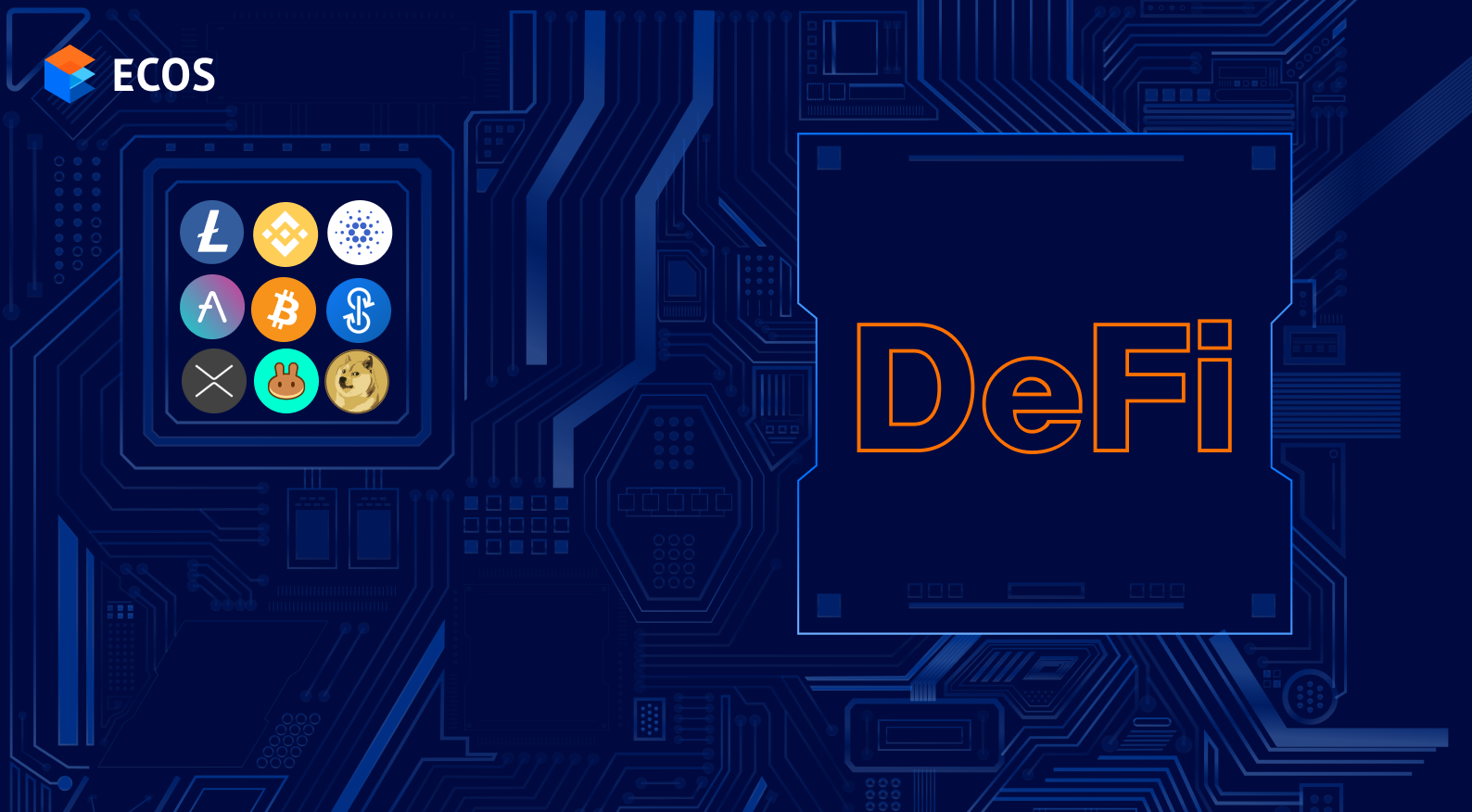DeFi fully explained — What is decentralized finance?

Key Takeaways
-
DeFi transforms finance by decentralizing services through blockchain and smart contracts, offering alternatives to traditional banking.
-
DeFi spans exchanges, lending, stablecoins, and insurance, demonstrated by platforms like Uniswap, Compound, and Nexus, providing diverse financial activities without central authorities.
-
DeFi offers advantages like lower costs and increased profitability but comes with risks like smart contract immutability and scalability challenges during peak periods. Users must carefully weigh these factors for a successful DeFi experience.
Bitcoin was the world’s first successful cryptocurrency to offer decentralized transactions, eliminating the need for a third party. Bitcoin’s initial success led to more and more people getting into Bitcoin Mining, as well as trying to create better cryptocurrencies to compete with it (altcoins).
Russian programmer Vitalik Buterin came up with the idea that blockchain technology should offer not only decentralized transactions but also decentralized services. By creating Ethereum (ETH), Buterin and Gavin Wood succeeded in creating a network that included several decentralized services, such as decentralized finance.
What is DeFi?
DeFi is a decentralized financial service. Until now, most financial services have been centralized, with banks acting as the central regulator of these services and charging customers extra fees. These services can include loans, deposits, currency exchange, etc. DeFi is therefore a solution to the centralization of all these services.
DeFi works through dApps (distributed applications), created through smart contracts.
Smart contracts are sets of code that manage blockchain services without the help of a third party. These smart contracts ensure the security and efficiency of dApps and DeFi. Most DeFi projects run on Ethereum, the first cryptocurrency to enable these services. DeFi can take different forms. The main types of DeFi are exchanges, loans, credits, insurance, mortgages, stable coin issuance, etc.
Can other cryptocurrencies be used for decentralized finance services?
The Ethereum blockchain does not support all cryptocurrencies. For example, the Ethereum blockchain does not support Bitcoin, unfortunately for all those who mine btc, so it cannot be used to access decentralized services like DeFi. However, using a store (i.e. smart contracts), Bitcoins can be «wrapped» by a process known as «minting» to become Bitcoin (WBTC) packages, which can then be used for various DeFis.
DeFi is further sophisticated by its composability. Decentralized finance applications are open-source applications. Open-source applications are available to all participants on the blockchain. Once the available encoding is distributed, people can use this encoding and add a new distributed application to it. This would save developers time and help them innovate by exploiting the ideas of others. This composition, which allows decentralized finance to be stacked one on top of the other, gave DeFi its new name: Money Legos.
In the same way that Lego toys are stacked on top of each other to create new shapes, new decentralized finance applications can be created by combining various other DeFi applications.
The main uses of DeFi
Exchanges
Distributed exchanges (DEX) are one of the most popular uses of DeFi. These are exchanges that run without an administrator and in a decentralized manner, thus incurring additional costs. There may be a gas fee, but it is relatively small. One of the most popular decentralized exchanges is Uniswap.
Borrowing or lending
One way to use decentralized finance is to borrow or lend tokens. Users can borrow money through decentralized finance and receive interest after a certain period. Users can also borrow money and pay it back with interest. This process is also known as Yield Farming.
The idea is the same as in traditional centralized banking, but without the bank, as smart contracts control the services on terms previously agreed upon by the users. One of the most popular decentralized finance’s for lending or borrowing is Compound.
Stable Currencies
Another very important use of DeFis is to issue stablecoins. Stable coins are fiat currencies that are not as volatile as other cryptocurrencies. Stable coins are used as a hedge against a potential slide since their price has not changed. Many people exchange their cryptocurrencies for stable coins before moving them elsewhere. The main stablecoins are DAI, USDC, etc.
Insurance
Last but not least, decentralized finance can be used as an insurance application. As the name suggests, these insurance services are decentralized, whether they offer wallet insurance or smart contracts. In recent years, decentralized insurance has made it possible to protect investors. Decentralized finance’s most widely used insurance service is Nexus.
Advantages and disadvantages
As you learn more about decentralized finance, you will understand all the benefits of using it. However, these advantages also have some disadvantages. The main advantages and disadvantages of DeFi are listed below.
Advantages
Lower costs
Since decentralized finance services differ from traditional banking services by being decentralized, banks generally do not charge more for DeFi services. Therefore, DeFi can offer you cheaper services.
Profitability
Decentralized finance can be a good way to make a profit. By borrowing money, you can earn interest when you get your money back. Also, the interest rates for DeFi financing are higher than for centralized financing. Thus, even savings accounts held through DeFi earn more profit than bank savings accounts.
Easy access
One of the great advantages of decentralized finance is that it is accessible to anyone with access to the blockchain. Traditional financial services may be limited to some people or offer higher interest rates to one group and lower rates to another. That’s why decentralized finance is making every effort to level the playing field.
Disadvantages
User error
One potential drawback is that smart contracts cannot be changed once they have been placed on the blockchain. If a smart contract has coding errors, it cannot be changed again. Hackers may take advantage of this and find creative ways to exploit coding errors to their advantage, and others may lose funding.
Scalability
During peak periods, distributed services can take a long time to validate. In addition, this congestion can lead to a higher than a usual number of transactions.
What is DeFi, and how does it differ from traditional financial services?
DeFi, or decentralized finance, refers to financial services that operate without a central authority, using blockchain technology and smart contracts. Unlike traditional services, DeFi eliminates the need for intermediaries like banks, providing solutions for loans, exchanges, and more.
Can cryptocurrencies other than Ethereum be used for DeFi services?
While most DeFi projects run on Ethereum, other cryptocurrencies like Bitcoin can be converted into wrapped tokens (e.g., WBTC) through a process known as minting. This allows them to be used within the Ethereum blockchain for various DeFi applications.
What are the main applications and uses of DeFi?
DeFi has diverse applications, including decentralized exchanges (DEX), borrowing or lending tokens (Yield Farming), issuance of stablecoins, and insurance services. Popular DeFi platforms for these applications include Uniswap, Compound, and Nexus.
What advantages does DeFi offer over traditional financial services?
DeFi provides lower costs, increased profitability through higher interest rates, and easy accessibility to a broader audience. Its decentralized nature levels the playing field and offers cost-effective financial services compared to traditional banking.
What are the potential disadvantages and risks associated with DeFi?
User error is a concern in DeFi due to the immutability of smart contracts; coding errors cannot be changed once deployed. Additionally, scalability issues during peak periods may result in longer validation times and increased transaction congestion. Users should be cautious about potential risks associated with these limitations.









